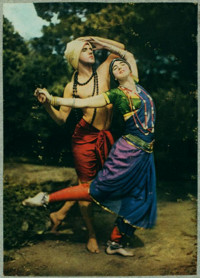DENISHAWN: Dances by Ruth St. Denis and Ted Shawn, the Mother and Father of American Modern Dance. Created in the early 1900's, the rarely Best Theatrical Performances Related to Casino The world of theatre has drawn from many aspects of life, and one of these fascinating themes is that of casinos and gambling. From the thrill and risk to human drama associated with gambling, the plays have captured a spot in the audiences for decades. Different aspects of luck, chance, and fortune, related to casinos, attract theatre-goers immensely. Our team at the online casino review website BonusTwist, who’s quite passionate about the theatre arts, has supported researching this topic. Their contribution is invaluable in pulling together the following theatrical plays. These plays about gambling reveal something concerning casinos, adding deepness and excitement to the narrative. The Odd Couple Neil Simon's work had its first staged performance in 1965. The plot revolves around the lives of misfit housemates Felix and Oscar. The two couldn't be farther apart. Felix is a neat and clean persona, while Oscar is a grimy and insensitive character. One play's key feature entails Oscar holding a weekly poker match among his friends. Much action involves the poker game and emphasizes personality differences. The poker sport is not a frivolous indulgence for them alone. It’s the diversion that represents how characters approach daily life. Oscar portrays a carefree and reckless persona, analogous to a gambler rolling the dice. Inversely, Felix can't handle situations, explaining his poker pastime misplacement. While the action unfolds, the poker sport reflects the roommates’ tension. Also, each brings with him a different outlook on being and risk. Meanwhile, the drama uses gambling to develop humor, friendship & human behavior dynamics. A Streetcar Named Desire Next in line is Tennessee Williams's show, first rendered in 1947. Gambling isn’t an apparent theme but is reasonably represented throughout with Stanley Kowalski. He’s a vicious, poker-playing man who enjoys using his will within the household. Gambling remains integral to his being, and two crucial poker scenes set the action for a large part. With the first poker segment, Stanley's aggressive behavior escalates early. This includes striking his wife Stella in a drunken rage. This section portrays his domineering character and foreshadows violence. A mirror poker scene occurs later. The second poker clip’s results or ramifications look graver than the first. Generally, the player's poker games mirror more than plot devices. The diversions mirror the stakes surrounding the character's lives. Stanley depends on gambling, believing he might manipulate the incident outcomes. However, towards the set’s tail-end, it's clear that fortune/fate aren’t so easily controlled. Rosencrantz And Guildenstern Are Dead Our next stage piece belongs to Tom Stoppard. It's an absurdist, existentialist work — first staged in 1966. The show’s minor characters — Rosencrantz & Guildenstern — are from Shakespeare's Hamlet. The personas navigate a decentralized universe yet are often blind to participatory shows. The plot goes deep into fate, fortune, and free choice, thus highly connected to casinos. The play opens with characters flipping coins, whereby Rosencrantz wins 92 successive tosses. The improbable winning streak sets up the remaining part. It further develops several themes concerning life’s chance role. Guildenstern becomes irritable at results, wondering if there’s some supernatural agency interference. Stoppard draws on this as a metaphor for life's surprises. This is similar to any gambler would experience, where happenings often appear out of control. Throughout the play, Rosencrantz & Guildenstern meet all Hamlet personas. However, they’re passive figures for the most part, just like gamblers being at the mercy of fortune. The existential underpinning with dialogue connects the play well with gambling themes. Guys and Dolls It was first performed in 1950 and is the most iconic production in Broadway records. Frank Loesser remains the lyricist/composer, with Abe Burrows & Jo Swerling being the playwrights. The story happens along the streets of New York City. Here, we find two parallel couples — Sky Masterson & Sarah Brown and Nathan Detroit & Miss Adelaide. The set also associates quickly with gambling because Nathan runs a floating craps game. Conversely, Sky displays a high-rolling gambler who’ll bet on almost anything. The Broadway musical opens with "Fugue for Tinhorns," where three gamblers debate the amount wagered on horse race’s outcomes. Thus, the audience finds itself in a high-rewards space for those who take risks. Much tension comes from Nathan's eternal quest to find a home for his craps game. Contrarily, Sky's bet with Nathan that he can take Sarah - a Salvation Army worker — out to a Havana dinner drives a romantic subplot. The show teases comic and problematic moments. Sky's eventual decision to make bets for craps players’ souls sets up a comic, poignant resolution. The character promises that on winning the game, they'll go to Sarah's mission meeting. Generally, Guys and Dolls stand highly buried and lowly basked regarding the gambler's entity. Thus, this makes the play an iconic stage production in casino themes. The Gin Game It's a 1976 Pulitzer Prize-winning stage piece written by D.L. Coburn. The work revolves around the closeness between two nursing facility dwellers, linked via their love of gin rummy. Life's disappointments and frustration become visible while playing game after game. The card game depicts a power struggle between the characters Weller and Fonsia. This builds tension between them, as Fonsia keeps winning every game, which frustrates Weller. The more that wears on, the more heated the confrontations get. Thus, the card game reflects beyond the passing of time. It’s an amusement reflecting character control and loss. Poignant as it may seem, The Gin Game probes deep into the emotional stakes of the world of gambling games. That remains true even when staging happens for no monetary gain. The play’s human bond reflections using a simple card game make it a thought-provoking drama. The piece doesn’t directly involve casino gambling but explores the competition and the aftermath of luck vs. skill. Therefore, the play forms a compelling analysis of human nature via a card game lens. Final Words As we discussed these plays in the world of gambling, Guys and Dolls poked as the best theatre work rooted in casino themes. Our team believes such a musical forms a brilliant acting of a bright gambler's world, high-profile bets, and the tiniest influence of luck on one’s fate. The play’s comic-romantic-dangerous mixture sets it apart. The mix stirs a specific audience response, quivering long after the curtain falls. We also noted that the Gin Game and Rosencrantz & Guildenstern Are Dead make deep plays of chance and decision. However, the Guys and Dolls show transcends them via its funny/touching interpretation of the casino experience. This piece captures gambling’s serious and lighthearted sides. Hence, that makes the show memorable or a standout choice, intertwining betting thrill with human emotions.
Videos
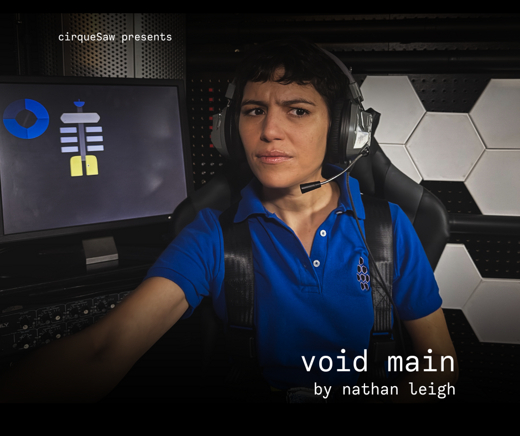 |
Void Main
cirqueSaw (1/8 - 1/26) | |

|
5BMF in Partnership with Orchestra of St. Luke’s: Five Borough Tour
Hostos Community College (3/25 - 3/25) | |
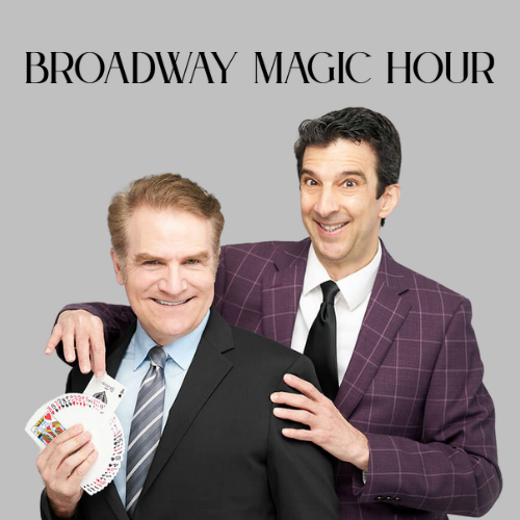
|
Broadway Magic Hour
Broadway Comedy Club (1/11 - 1/11) | |
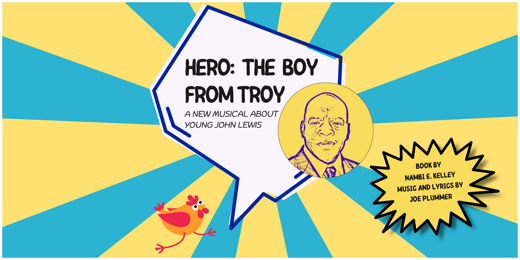
|
HERO THE BOY FROM TROY: A NEW MUSICAL ABOUT YOUNG JOHN LEWIS
First Woman LLC (1/17 - 3/21) | |

|
Late Day Thunder
Kostabi World (1/4 - 1/4) | |
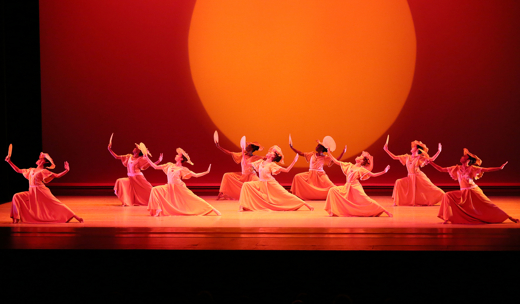
|
Alvin Ailey American Dance Theater’s New York City Center Season December 4, 2024 – January 5, 2025
New York City Center (12/4 - 1/5) | |
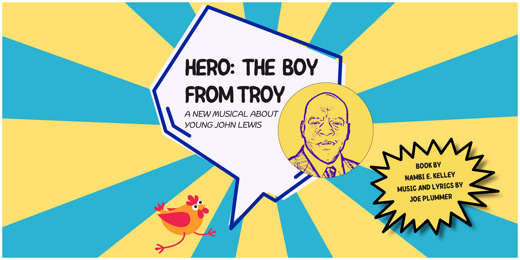
|
HERO THE BOY FROM TROY: A NEW MUSICAL ABOUT YOUNG JOHN LEWIS
First Woman LLC (1/17 - 3/21) | |

|
THE SHINE CHALLENGE 2025
Theater for the New City (1/30 - 2/16) | |
| VIEW SHOWS ADD A SHOW | ||
Recommended For You


